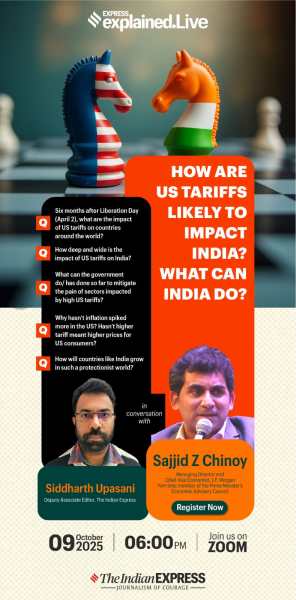
Why in the news?
India strongly denounced Pakistan at the UN Security Council (UNSC), calling it a nation that “bombs its own people”. During the Open Debate on Women, Peace, and Security, India’s Permanent Representative to the UN, Ambassador Parvathaneni Harish, condemned Pakistan for conducting Operation Searchlight in 1971, sanctioning a “systematic campaign of genocidal mass rape of 400,000 women citizens by its own army” and relying on “misdirection and hyperbole” to divert global attention from its actions.
“Every year, we are unfortunately fated to listen to the delusional tirade of Pakistan against my country, especially on Jammu and Kashmir, the Indian territory they covet. Our pioneering record on the Women, Peace and Security agenda is unblemished and unscathed,” Harish said on Tuesday (Oct 6), after a Pakistani official claimed that the Kashmiri women have “endured sexual violence for decades”.
Key takeaways:
— Tensions between East and West Pakistan had been simmering since 1947, and by early 1971, the country stood at the cusp of civil war. On March 25, the Pakistan Army launched Operation Searchlight, under the command of the then-President General Yahya Khan, with the aim to crush all political opposition in the East.
— Alongside Bengali nationalists, the operation also targeted the intelligentsia, academics, and Bengali Hindus — with widespread, indiscriminate extrajudicial killings. Anywhere between 300,000 and 3 million Bengalis were killed, and around 10 million refugees would flee to India.
— A fatwa was issued during the Operation that declared women as “booty of war”, which led to 200,000 cases of systematic rape, according to independent researchers. Pakistan Army soldiers captured numerous women and kept them as sex slaves. One of the rape survivors, who recalled the dreadful day in the film ‘Bay of Blood’, a documentary by Delhi-based filmmaker Krishnendu Bose , says, “A Pakistan Army general was ‘compassionate’ for not capturing me and instead instructed his troops to commit the horrific act at my home. My infant son, who saw the act, died of shock on that day.”
Story continues below this ad
— The operation was a result of years of cultural subjugation of the Bengali identity, including the Bengali language, and even discrediting a general election where the Awami League, a Bengali nationalist party of East Pakistan, led by Sheikh Mujibur Rahman, won by a majority.
— This wanton violence, however, only spurred nationalist sentiment. Bengali civilians and military men began to fight back. Five battalions of the East Bengal Regiment mutinied, and civilians raided arms depots to help resist the onslaught by the Pak Army. Thus came to be the Mukti Bahini, a guerrilla fighting force, which by April 1971 was fairly organised, comprising both civilians and Pak Army defectors.
— Through 1971, the Mukti Bahini would control swathes of the countryside, and conduct successful ambush and sabotage operations. “Joy Bangla” was the war cry of the Mukti Bahini fighting for the freedom of Bangladesh.
— Notably, given India’s already tenuous relations with Pakistan, and the burgeoning refugee problem in Bengal and Assam caused by the crisis, the Indira Gandhi government decided to support this resistance movement by arming and training the Mukti Bahini. Thus, the war to liberate Bangladesh, and India’s role in it, long predated the beginning of the official Indo-Pak War of 1971.
Story continues below this ad
— On December 16, 1971, at precisely 1655 hours IST, Lt Gen AAK Niazi, Commander of the Pakistan Eastern Command, signed the Instrument of Surrender in the presence of Lt Gen JS Aurora, GOC-in-C of the Indian Eastern Command, in Dacca (now Dhaka).
— This brought to an end a war which officially lasted just 13 days. Pakistan was split in two, and Bangladesh was born. The Indian Army took approximately 93,000 prisoners of war, the largest surrender of forces since World War II. And with its victory, the balance of power in the subcontinent firmly, and forever, shifted to India.
BEYOND THE NUGGET: Operation Safed Sagar
Operation Safed Sagar was the Indian Air Force’s (IAF) air support mission during the 1999 Kargil War. The aim was to reclaim Indian peaks occupied by Pakistani intruders, marking the first large-scale use of air power in Kashmir since the 1971 war.
Launched on May 26, 1999, it involved unprecedented high-altitude precision attacks on enemy positions from aircraft like the Mirage 2000 and MiG-21 without crossing the Line of Control. The successful operation showcased the IAF’s ability to conduct high-altitude warfare, demonstrating the strategic value of calibrated air strikes in a localized conflict and helping India to achieve victory by July 26, 1999.
According to indianairforce.nic.in,
Story continues below this ad
“The IAF was first approached to provide air support on 11 May 99 with the use of helicopters. This was followed by a go ahead given on 25 May by the Cabinet Committee on Security (CCS) to the IAF to mount attacks on the infiltrators without crossing the LoC. While there was considerable pressure from outside the IAF to operate only attack helicopters, the CAS succeeded in convincing the Govt that in order to create a suitable environment for the helicopters, fighter action was required.
Operation Safed Sagar, as the air operations in the Kargil area were called, was, indeed, a milestone in the history of military aviation, as this was the first time that air power was employed in such an environment.”
Indian Air Force (IAF) Day is celebrated annually on October 8th to commemorate the official establishment of the Indian Air Force in 1932.
Post Read Questions
Consider the following statements:
1. ‘Operation Searchlight’ was the response of Pakistan to Bangladesh after its liberation.
Story continues below this ad
2. Operation Safed Sagar was the Indian Air Force’s (IAF) air support mission during the Bangladesh Liberation War.
Which of the above is/are not correct?
(a) Only 1
(b) Only 2
(c) Both 1 and 2
(d) Neither 1 nor 2
(Sources: 25 yrs of Kargil war: IAF recalls ‘Op Safed Sagar’, pays homage to fallen heroes, How India won the 1971 War in under two weeks, Krishnendu Bose’s Bay of Blood recounts carnage of Pakistan’s Operation Searchlight on Bangladesh, India slams Pakistan at UNSC for engaging in ‘systematic genocide’)
Subscribe to our UPSC newsletter. Stay updated with the latest UPSC articles by joining our Telegram channel – IndianExpress UPSC Hub, and follow us on Instagram and X.
🚨 Anniversary Special: Read the UPSC Essentials September 2025 special edition, celebrating two years of the magazine! Share your views and suggestions at manas.srivastava@indianexpress.com 🚨

Story continues below this ad
Topic: How are US tariffs likely to impact India? What can India do?
You are invited to the next Express Explained.live with Sajjid Chinoy, Managing Director and Chief Asia Economist at J.P. Morgan, Part-time member of the Prime Minister’s Economic Advisory Council in conversation with Siddharth Upasani, Deputy Associate Editor, The Indian Express.
Date:- Oct 9, 2025 l Time:- 6:00 P.M.| Place:- Zoom
Join with this link: https://zoom.us/webinar/register/2017591481565/WN_6ffmCwqmTNi-MNor0hxSzA



































